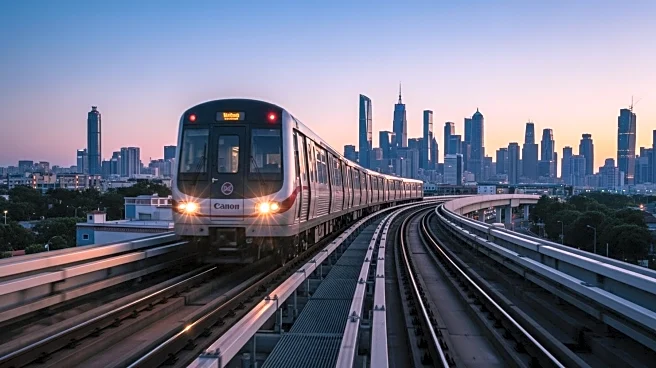What's Happening?
Chicago's transit agencies, including the CTA, Metra, and Pace, are facing a budget shortfall of approximately $200 million for the next year, which is significantly less than previously estimated. Despite this, significant service cuts are expected if state lawmakers do not approve additional funding. The Regional Transportation Authority had initially projected a $771 million gap, but increased sales tax revenue and a proposed fare increase have reduced the deficit. The CTA plans to implement a 10% fare increase, which could generate an additional $30 to $35 million. However, without new revenue, the region's transit funding shortfall could rise to $790 million by 2027.
Why It's Important?
The potential service cuts could have a profound impact on public transportation users in Chicago, particularly those who rely on the CTA for daily commutes. Reduced service could lead to longer wait times and decreased accessibility, affecting the city's economy and quality of life. The situation underscores the need for sustainable funding solutions for public transit systems, which are vital for urban mobility and environmental goals. The revised budget estimates may also influence legislative decisions, as the urgency for immediate action might be perceived as less critical.
What's Next?
State lawmakers are expected to reconvene to address the transit funding issue. The outcome of these discussions will determine whether additional funding can be secured to prevent service cuts. Transit agencies are preparing for potential reductions in service, which could include eliminating bus routes and closing train stations. The situation highlights the ongoing challenges of balancing budget constraints with the need to maintain and improve public transportation services.










